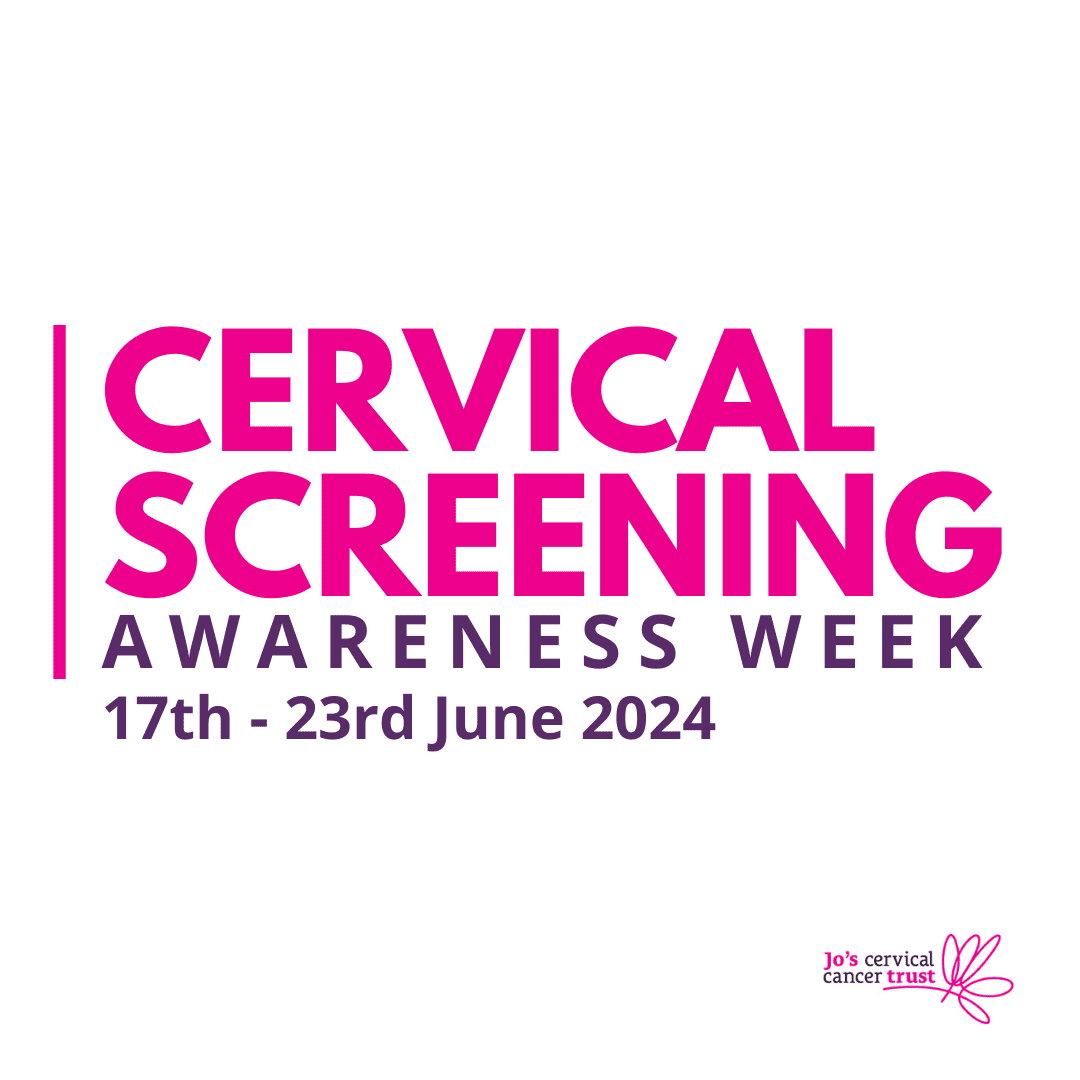This week is Cervical Screening Awareness Week.
Cervical cancer can occur anywhere in the cervix. Women under the age of 45 are most likely to be affected by this disease. Anyone with a cervix can get cervical cancer.
The cervix is the opening between the vagina and the womb (uterus).
It’s part of the reproductive system and is sometimes called the neck of the womb.
Nearly all cervical cancers are caused by an infection from certain types of human papillomavirus (HPV).
Attending cervical screenings, which detect and treat changes in cells before they turn into cancer, can often prevent it.
Cervical cancer usually grows very slowly. How serious it is depends on how big it is, if it has spread and your general health.
Symptoms
Symptoms of cervical cancer include:
- vaginal bleeding that’s unusual for you – including bleeding during or after sex, between your periods or after the menopause, or having heavier periods than usual
- changes to your vaginal discharge
- pain during sex
- pain in your lower back, between your hip bones (pelvis), or in your lower tummy.
If you have another condition like fibroids or endometriosis, you may get symptoms like these regularly.
You might find you get used to them. But it’s important to be checked by a GP if your symptoms change, get worse, or do not feel normal for you.
What happens at the GP appointment?
You may be asked to undergo an examination by the GP.
When booking your appointment, you can request a female doctor.
Behind a screen, you will be asked to undress from the waist down. A sheet will be provided for you to cover yourself with.
Then the GP may:
- look at the outside of your vagina (vulva)
- feel inside your vagina with 2 fingers while pressing on your tummy (they will be wearing gloves)
- gently put a smooth, tube-shaped tool (a speculum) into your vagina so they can see your cervix
- take a small sample of cells from your cervix using a soft brush.
You may find it uncomfortable, but it shouldn’t be painful. Whenever you feel uncomfortable, talk to your doctor.
If you want, you can have a friend, family member, or other staff member with you during your exam.
Referral to a specialist
When your GP or practice nurse suspects that you have a condition that needs to be investigated, they may refer you to a specialist in hospital.
If you have certain symptoms, this may be an urgent referral within 2 weeks. This does not definitely mean you have cancer.
Main causes of cervical cancer
Nearly all cervical cancers are caused by an infection with certain high-risk types of human papillomavirus (HPV).
You can get HPV from:
- any skin-to-skin contact of the genital area
- vaginal, anal or oral sex
- sharing sex toys
Who is more likely to get cervical cancer
Women under the age of 45 are more likely to develop cervical cancer. Cervical cancer can affect anyone with a cervix.
A total hysterectomy (removal of your womb and cervix) prevents cervical cancer.
You might also be more likely to get cervical cancer if:
- you’re under 45 – cervical cancer is more common in younger people
- you have a weakened immune system, like if you have HIV or AIDS
- you have given birth to multiple children or had children at an early age (under 17 years old)
- your mother took the hormonal medicine diethylstilbestrol (DES) while pregnant with you – your GP can discuss these risks with you
- you’ve had vaginal, vulval, kidney or bladder cancer in the past.
How to lower your chance of getting cervical cancer
Cervical cancer cannot always be prevented. The good news is that you can reduce your chances of getting cervical cancer by taking certain steps.
You can prevent cervical cancer by getting screened for cervical cancer and getting vaccinated against HPV.
- Women and people with a cervix between the ages of 25 and 64 are invited to regular cervical screenings. The test helps detect and treat changes in cervix cells before they become cancerous.
- Children between the ages of 12 and 13 are offered the HPV vaccine. In addition to preventing genital warts, it helps prevent cancer caused by HPV.
You can also lower your chance of getting cervical cancer by:
- using condoms, which lower your chance of getting HPV – but they do not cover all the skin around your genitals so you’re not fully protected
- quitting smoking – smoking can weaken your immune system and the chemicals in cigarettes can also cause cervical cancer
- eating a balanced diet to help support your immune system
It’s important to get any symptoms of cervical cancer checked by a GP.
